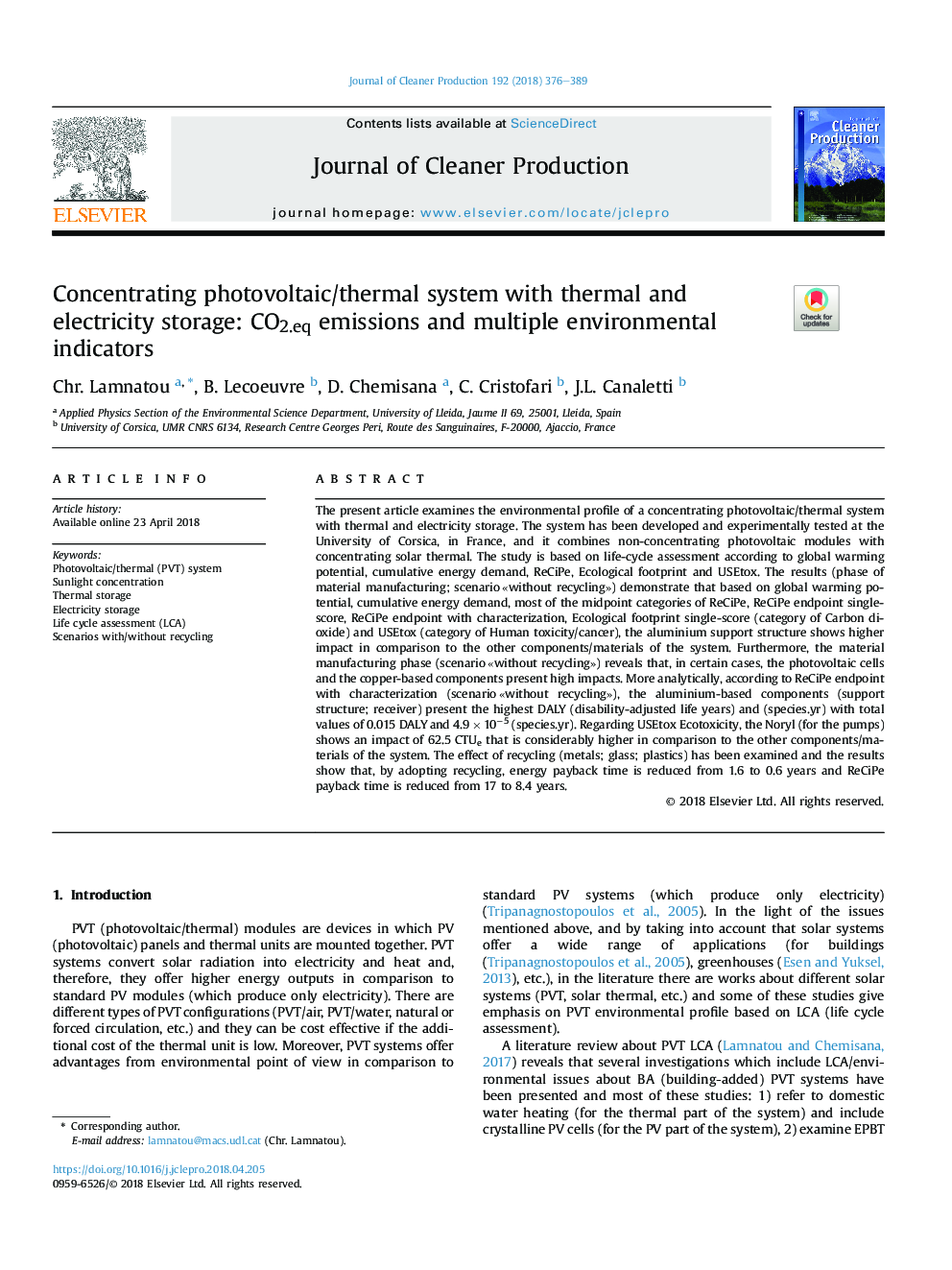| کد مقاله | کد نشریه | سال انتشار | مقاله انگلیسی | نسخه تمام متن |
|---|---|---|---|---|
| 8094567 | 1522061 | 2018 | 14 صفحه PDF | دانلود رایگان |
عنوان انگلیسی مقاله ISI
Concentrating photovoltaic/thermal system with thermal and electricity storage: CO2.eq emissions and multiple environmental indicators
دانلود مقاله + سفارش ترجمه
دانلود مقاله ISI انگلیسی
رایگان برای ایرانیان
کلمات کلیدی
موضوعات مرتبط
مهندسی و علوم پایه
مهندسی انرژی
انرژی های تجدید پذیر، توسعه پایدار و محیط زیست
پیش نمایش صفحه اول مقاله

چکیده انگلیسی
The present article examines the environmental profile of a concentrating photovoltaic/thermal system with thermal and electricity storage. The system has been developed and experimentally tested at the University of Corsica, in France, and it combines non-concentrating photovoltaic modules with concentrating solar thermal. The study is based on life-cycle assessment according to global warming potential, cumulative energy demand, ReCiPe, Ecological footprint and USEtox. The results (phase of material manufacturing; scenarioâ¯Â«without recycling») demonstrate that based on global warming potential, cumulative energy demand, most of the midpoint categories of ReCiPe, ReCiPe endpoint single-score, ReCiPe endpoint with characterization, Ecological footprint single-score (category of Carbon dioxide) and USEtox (category of Human toxicity/cancer), the aluminium support structure shows higher impact in comparison to the other components/materials of the system. Furthermore, the material manufacturing phase (scenarioâ¯Â«without recycling») reveals that, in certain cases, the photovoltaic cells and the copper-based components present high impacts. More analytically, according to ReCiPe endpoint with characterization (scenarioâ¯Â«without recycling»), the aluminium-based components (support structure; receiver) present the highest DALY (disability-adjusted life years) and (species.yr) with total values of 0.015 DALY and 4.9â¯Ãâ¯10â5 (species.yr). Regarding USEtox Ecotoxicity, the Noryl (for the pumps) shows an impact of 62.5 CTUe that is considerably higher in comparison to the other components/materials of the system. The effect of recycling (metals; glass; plastics) has been examined and the results show that, by adopting recycling, energy payback time is reduced from 1.6 to 0.6 years and ReCiPe payback time is reduced from 17 to 8.4 years.
ناشر
Database: Elsevier - ScienceDirect (ساینس دایرکت)
Journal: Journal of Cleaner Production - Volume 192, 10 August 2018, Pages 376-389
Journal: Journal of Cleaner Production - Volume 192, 10 August 2018, Pages 376-389
نویسندگان
Chr. Lamnatou, B. Lecoeuvre, D. Chemisana, C. Cristofari, J.L. Canaletti,